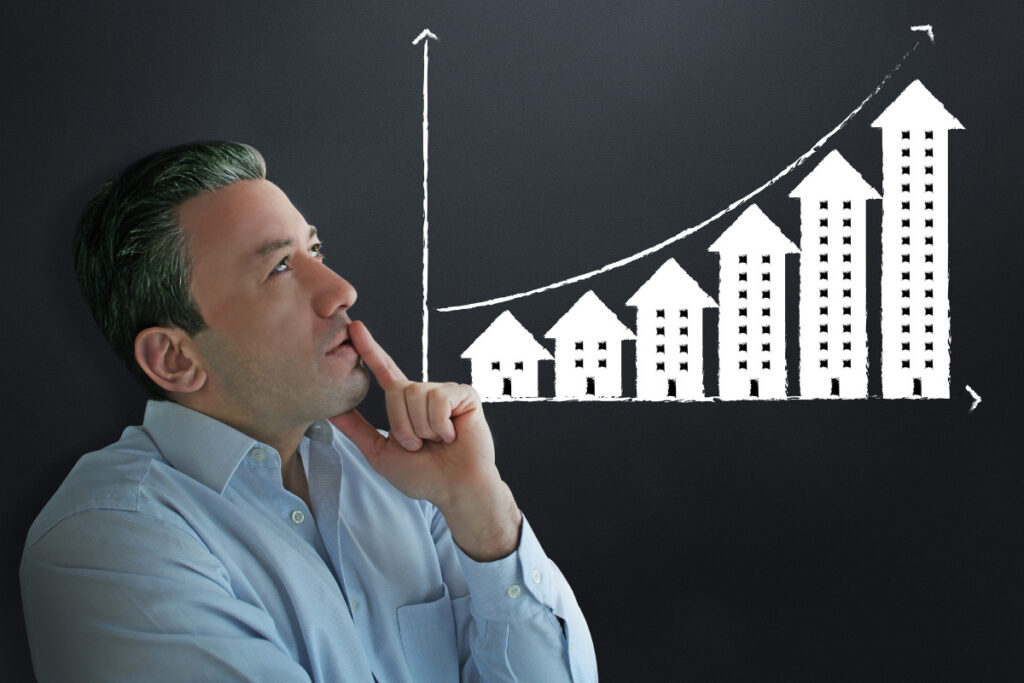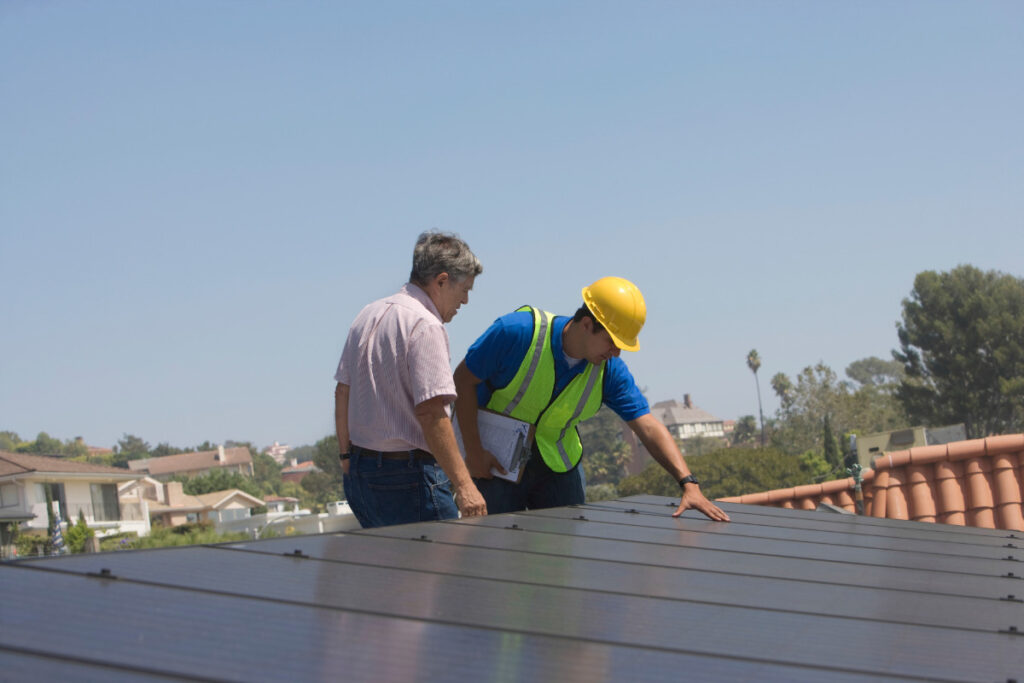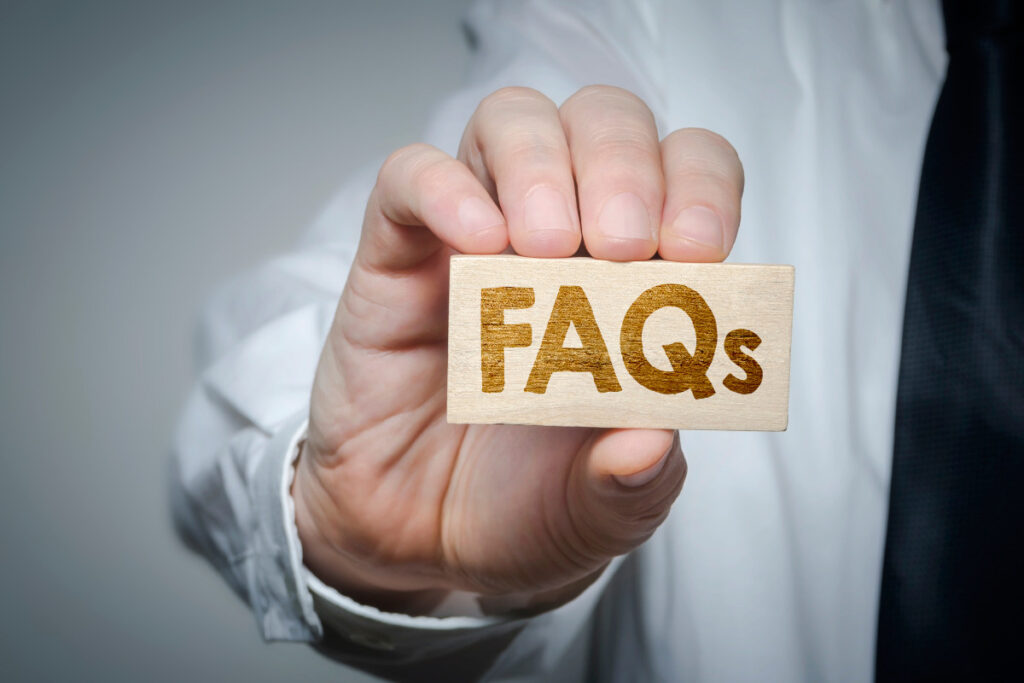Introduction
Are you considering buying a home with existing solar panels? This increasingly popular trend offers numerous benefits, including financial savings, energy efficiency, and environmental impact. However, several factors must be considered before making this investment to ensure it’s the right fit for you.
Let’s explore the pros and cons of purchasing a solar-equipped property and provide essential tips on what to look for. So let’s dive in and discover how to make an informed decision when buying a home with existing solar panels!
New Ideas Have Also Been Added To Provide More Comprehensive Information To The Reader
This blog post will explore key things to consider when purchasing a home with existing solar panels. We’ve restructured the outline to provide relevant and comprehensive information. From understanding financing options and ownership agreements to assessing panel efficiency and maintenance requirements, we cover everything you need to know before making an informed decision.
Investing in renewable energy is an investment in both financial savings and environmental sustainability. However, before committing to purchase a solar-equipped home or property, it’s important to weigh the pros and cons of doing so. Our outlines provide insight into potential pros (e.g., increased home value) and potential cons (e.g., lease or loan payments).
Pros And Cons Of Buying A Home With Existing Solar Panels

Buying a home with existing solar panels can have both advantages and disadvantages. One benefit is the financial savings on electricity bills. Another potential advantage is the availability of tax credits and rebates. Additionally, the presence of solar panels can increase the home’s value. Solar panels should be considered for lease/loan payments and maintenance/repair costs.
Financial Savings On Electricity Bills
Solar panels can significantly reduce electricity bills by allowing homeowners to save money on their electricity bills. Solar energy systems generate clean, renewable power from the sun’s rays, reducing a household’s reliance on grid-supplied electricity. Consequently, homeowners can enjoy lower utility expenses as they use less energy from traditional sources. According to recent studies, an average American family that installs solar panels can save between $10,000 and $30,000 on their electric bills throughout a 20-year time frame.
To illustrate this point further, consider Lisa’s experience after purchasing her solar-equipped residence in sunny California. Her monthly electric bill used to total around $200 before moving into her new home; however, after settling in and taking advantage of her property’s existing solar system, Lisa now pays only $25 per month for electricity! This drastic reduction in costs results in immediate financial gains and contributes to long-term savings over time.
Moreover, the monetary rewards from solar panels depend on several factors. One crucial factor is geographical location. Areas with greater sun exposure tend to yield more substantial returns. Another essential factor is the size and efficiency of the installed solar panel system. The system’s capacity relative to residential usage patterns also plays a significant role.
Potential Tax Credits And Rebates
Buying a home with existing solar panels comes with the added benefit of potential tax credits and rebates. The federal government offers a 30% tax credit for installing solar panels, which can significantly save your taxes. In addition, some states and local governments offer additional incentives for switching to solar energy. For example, California offers a rebate program that refunds up to 10% of the total system costs for homeowners who install eligible solar equipment. These incentives help offset the initial cost of installing solar panels and make it more financially feasible in the long run.
Another potential financial benefit is net metering. This allows you to earn credits on your electricity bill for excess power generated by your solar panels that goes back into the grid. Depending on where you live, these credits could significantly reduce or even eliminate your monthly electric bill entirely. Taking advantage of these incentives can decrease short-term and long-term costs associated with buying a home with existing solar technology while increasing its value and sustainability features.
Increased Home Value
Purchasing a home with existing solar panels can increase its resale value. According to research, homes with solar panels sell faster than those without and at higher prices. A study by the Lawrence Berkeley National Laboratory found that, on average, solar-equipped homes sold for around $15,000 more than non-solar-equipped homes.

Moreover, as more individuals become environmentally conscious and prioritize energy efficiency in their living spaces, owning a home with existing solar equipment is becoming increasingly attractive. Buyers recognize the potential long-term savings of having access to renewable energy sources and are willing to pay a premium for this feature.
Overall, investing in purchasing a home with existing solar infrastructure can lead to significant ROI when reselling the property. Homeowners who opt for sustainable living will benefit from reduced or eliminated electric bills and increased property values!
Potential Lease Or Loan Payments
One of the potential drawbacks of buying a home with existing solar panels is the possibility of lease or loan payments. If the previous owner financed their solar equipment with a loan, you might be responsible for repaying any outstanding balance on that loan. Similarly, if they leased the panels, you must take over the lease terms as part of your homeownership agreement.
For example, if a homeowner used a 20-year solar loan to finance their equipment and sold their home after only five years, you would still be responsible for making payments on the remaining 15 years of that loan. Before purchasing a home with existing solar equipment, it’s important to understand what type of financing arrangement was made so that you can factor those costs into your overall budgeting calculations.
It may also be worth considering whether saving up and purchasing solar equipment outright makes more sense than taking out a lease or loan. While these options can provide immediate access to clean energy without an upfront investment, they often come with higher total costs over time due to interest and other fees associated with financing agreements.
Maintenance And Repair Costs
Keeping solar panels in good condition is essential to ensure optimal performance and extend their lifespan. Proper maintenance, such as regular cleaning and inspection, can prevent minor issues from turning into major repair costs. The cost of cleaning will depend on factors like panel size, location, and frequency. On average, homeowners can expect to spend between $100-$300 per year on maintenance costs.
As a homeowner, it’s important to be ready to bear the expenses if any repairs become necessary for your property. While most solar panels come with warranties that cover damages resulting from manufacturer defects or environmental damage (like hail), verifying the warranty coverage before buying a home with existing equipment is always wise. Be sure to ask about any transfer fees for transferring warranties as well – this could impact your overall cost analysis when looking at various homes with existing solar systems.
What To Look Out For When Buying A Home With Solar Panels
When considering buying a home with solar panels, it is important to evaluate the age and condition of the panels, ownership, and financing agreements, proper permits and installations, monitoring and maintenance records, and compatibility with the home’s electrical system.
Age And Condition Of Solar Panels
The age and condition of the solar panels in a home with existing solar equipment are important factors to consider before purchasing. Older solar panels may not be as efficient or reliable as newer models, leading to potential maintenance and replacement costs down the line. Inspecting the panels’ quality and installation is essential, ensuring they meet current building code standards. Reviewing any warranty documentation related to the system’s performance and lifespan is crucial.
If you are considering purchasing a home with an older solar system, it might be worth researching upgrades or replacements that could improve energy efficiency while avoiding costly repairs in advance. Considering these precautions when assessing a potential purchase’s value proposition, you can decide whether investing in residential solar power will benefit your long-term financial goals.
Ownership And Financing Of Solar Panels
It is important to determine the ownership and financing of the solar panels before purchasing a home with existing solar equipment. Solar panel systems can be owned outright, financed through a loan, or leased from a third party. If the panels are leased, the buyer must take over the lease agreement as part of owning the property. Also, buyers should investigate any outstanding payments on the panels and whether they will assume responsibility for them.
Financing options for solar panel systems include loans, leases, and power purchase agreements (PPAs). Buyers must also consider their financial position when evaluating ownership and financing issues related to solar panels. For example, it may be more cost-effective to purchase a system outright rather than finance it with a loan or lease. Understanding all these factors is crucial before deciding to purchase homes with existing solar equipment.
Proper Permits And Installations
Before buying a home with existing solar panels, it is important to ensure the installation is done properly and has all the necessary permits. Improper installations can lead to safety hazards, decreased efficiency, or failure of the entire system. You should inquire if the installation was professionally done and if there is any documentation on its installation, such as blueprints or building permits.
Additionally, you should check whether local laws require permits for solar panel installation and whether they were obtained for this particular property. Without proper permitting, you could be required to remove an improperly installed system at your own expense or face penalties from municipal authorities. Ensuring that all necessary permits are present will help protect your investment in a sustainable future while avoiding potential liabilities.

Lastly, consider having a professional inspection completed by an experienced technician before finalizing your purchase of a home with solar panels. An inspection can reveal any installation issues so they can be remedied before ownership transfers and provide peace of mind knowing that you have made an informed decision about purchasing one of these energy-efficient homes.
Monitoring And Maintenance Records
When buying a home with existing solar panels, asking for monitoring and maintenance records is crucial. The homeowner, installer, or monitoring company typically keeps these record-keeping documents and provides essential information about the solar panel’s performance and care. Reviewing these records can help determine if regular maintenance was performed or any significant issues were identified along the way. For instance, it could be discovered that an inverter needs replacement after a few years of use. This may require the new owner to prepare for repair costs.
It is important to ensure that these records exist comprehensively before purchasing the house, as they reflect how well-maintained the system has been. The documentation of regular cleaning schedules or technical repairs may give buyers insight into how efficient and reliable the equipment will likely be once they own it. In addition, reviewing maintenance records can help identify areas where enhancements could be made or highlight any potential issues that need addressing immediately upon taking ownership of their new property. It’s always best practice to request this information from homeowners during inspections so you can make informed decisions on your purchase without any surprises down the road!
Compatibility With Home’s Electrical System
One crucial factor when buying a home with existing solar panels is whether they are compatible with the house’s electrical system. It’s important to evaluate whether the solar panels’ inverter and wiring match the electrical systems in place. This involves assessing if there is enough capacity for additional energy generated by the panels and evaluating how well it integrates into the current power supply.
If not, this could lead to problems such as circuit overloads or safety hazards caused by incompatible equipment. Sometimes, an upgrade or rewiring may be necessary before installation. Homeowners should ensure that their homes meet building codes and safety requirements before installation, especially since many local regulations require permits for solar panel installations.
Proper compatibility between a home’s electrical system and solar equipment is essential when purchasing a property with existing solar technology. During the inspection, it’s important to evaluate certain factors carefully. This will help you avoid problems later on down the line. These problems can be related to rewiring or upgrades. Incompatibility issues can arise between your electric grid and your newly-installed green energy source. So, make sure to pay attention to these factors to ensure compatibility.
How To Make An Informed Decision When Buying A Home With Existing Solar
Several factors must be considered when purchasing a home with existing solar panels. Firstly, inspect the solar panels to ensure they are in good condition and functioning optimally. Secondly, research local incentives and regulations to determine potential cost savings and any legal requirements. Thirdly, review ownership and financing agreements to understand who owns the panels and any associated costs. Finally, evaluate the home’s energy usage to determine if the solar panels meet the household’s needs.
Inspection Of The Solar Panels
To ensure that you are making an informed decision when purchasing a home with existing solar panels, it is crucial to inspect the condition of the panels. Age, wear and tear, and overall efficiency can impact the system’s value. To ensure that the item performs at its best, obtaining maintenance records from the seller and checking if they have consistently provided regular care is important. Additionally, check for any physical damage or defects in the panels or their connections to your property’s electrical system.
With technological advancements changing each year rapidly, it is wise to assess whether these older solar panels still meet current standards. Consider consulting with an experienced contractor specializing in solar panel installations and maintenance to thoroughly inspect all equipment involved. Remember that this step could save you time and money on unforeseen repairs.
Furthermore, be sure that local building code requirements have been met during installation: The panels should be safely secured; no dangerous wiring systems or damage must exist; signs of roof leaks should not be present – this will ensure both safety and longevity of your potential new home’s investment into clean energy solutions like solar power.
Researching Local Solar Incentives And Regulations
Researching local solar incentives and regulations is crucial when purchasing a home with existing solar panels. Depending on your location, different states, counties, or cities may offer various incentives for homeowners who use renewable energy sources such as solar panels. These can include tax credits, rebates, or grants that can help offset the equipment’s installation or maintenance cost. For example, in California, homeowners who install solar panels are eligible for a 30% federal tax credit and additional state rebates.
Additionally, there may be specific rules and regulations regarding installing and using solar equipment in your area that you need to be aware of before making any decisions. Net metering policies allow utility companies to credit homeowners for excess power generated by solar systems back into the grid. Other areas may require building permits or inspections before installing new systems.
By researching these local incentives and regulations beforehand, you can determine whether buying a home with existing solar panels is a good investment and what benefits you might receive from using renewable energy sources in your new home.
Reviewing Ownership And Financing Agreements

Before buying a home with existing solar panels, reviewing the ownership and financing agreements is important. This will help you understand who owns the solar equipment and whether there are any outstanding payments for it. The seller owns the solar panel system outright, allowing customers to enjoy its benefits without additional costs. However, if the seller financed or leased the solar panels, you may have to assume those payments as part of your mortgage.
For example, suppose you’re interested in purchasing a 3-bedroom house that uses renewable energy from its roof-mounted photovoltaic array. Before purchasing the property, obtain copies of all relevant contracts. These contracts include those related to ownership and financing agreements. These contracts are crucial to ensure you know of any obligations and liabilities. It is important to avoid any unpleasant surprises in the future. You should know of any debts associated with utility invoices generated through alternative power sources such as solar energy.
Understanding ownership and financing issues can save you thousands of dollars and ensure that your investment in sustainable living pays off in more ways than one. So be sure to ask questions about these topics during your initial visit or inspection of homes with existing solar equipment.
Evaluating The Home’s Energy Usage
Evaluating the home’s energy usage is essential to make an informed decision when buying a home with solar panels. This involves analyzing the average monthly electricity bills and determining how much electricity the solar panels generate. Moreover, it’s crucial to assess the energy efficiency of the household and pinpoint any potential areas that can be improved upon.
For instance, replacing old incandescent light bulbs with LEDs or installing a programmable thermostat could improve energy efficiency while reducing overall costs. Alternatively, adjusting your solar panel system may be necessary if you add additional appliances or increase your household’s size.
Ultimately, evaluating a home’s energy usage will help you determine whether purchasing this property makes financial sense and ensure that you are making a conscious effort towards sustainable living. Moreover, adopting efficient habits reduces carbon footprint and saves money by lessening reliance on traditional grid-based power sources.
Conclusion
Solar panels can be a great investment for those looking to save on electricity bills and reduce their carbon footprint. However, there are important factors to consider before making such an investment.
Buyers should ensure that the solar panels are in good condition and have proper permits, ownership, financing, and maintenance records. They should also evaluate their energy usage and research local incentives and regulations. Buyers can make informed decisions when purchasing a solar-equipped home, leading to increased savings, property value, and sustainability.
What Can DroneQuote Do
At DroneQuote, we believe solar energy is the way of the future and the present. As more people recognize the numerous benefits of solar power, buying homes with existing solar panels is becoming increasingly popular. If you’re considering this option, we want to help you make an informed decision by sharing valuable insights and tips in our latest blog post.
But what if you don’t have solar panels yet? Don’t worry; we can help with that too! Our solar services are designed to help homeowners like you save money on their energy bills while reducing their environmental impact. With our advanced technology and expertise, we can create a customized solar solution that fits your unique needs and budget.
So why wait? Whether you’re buying a home with existing solar panels or looking to install your own, now is the time to take action and embrace the power of solar energy. Sign up today to learn more about our solar services and how we can help you switch to a cleaner, more sustainable energy source.
FAQs:

-
What should I look for when buying a home with existing solar panels?
When purchasing a home with existing solar panels, it is important to verify the age and condition of the system. Ensure you take specific measures to ensure the local authorities have properly permitted and inspected the system. You must determine whether any contracts or leases associated with the system will transfer with ownership. It is essential to ensure you have all the necessary documentation in order. Checking with local authorities is an important step in this process. You should not overlook the importance of obtaining all the relevant permits and approvals. Finally, ensure you are aware of any contractual obligations from the system.
-
How can I assess the performance of an existing solar panel system before buying a home?
If you’re planning to buy a home with a solar panel system, it’s important to assess its performance beforehand. One way to do this is by reviewing previous energy bills. This will give you an idea of how much electricity the system has generated over time. Analyzing data can help determine the effectiveness of a system and its energy needs. You may also consider having a professional inspection to check for potential issues or needed repairs.
-
After purchasing a home, can I still claim tax credits on an existing solar panel installation?
The ownership of warranties and incentives depends on when the original installation occurred and whether or not you assume ownership. You should consult with your tax advisor to explore all available options.
-
Who is responsible for maintenance and repair costs on an existing solar panel installation once I purchase a home?
When buying a property with a solar panel system, it’s crucial to establish responsibility for maintenance and repair costs. Be sure to have this clearly documented in your sales contract so there aren’t any surprises down the road!
